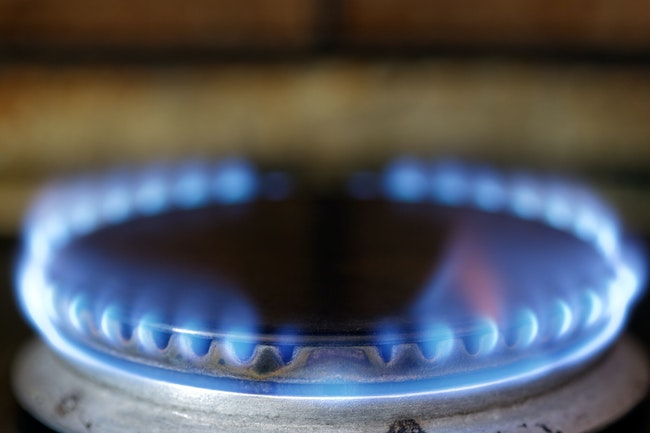 The flame from a gas stove burner. Oregon’s largest natural gas utility has proposed raising rates for the second time in a year. (Ervins Strauhmanis/Flickr)
The flame from a gas stove burner. Oregon’s largest natural gas utility has proposed raising rates for the second time in a year. (Ervins Strauhmanis/Flickr)
The Oregon Citizens’ Utility Board is pushing back on proposed rate increases from the largest natural gas utility in the state, saying NW Natural is prioritizing shareholder profits over the best interests of Oregonians.
Last November, rates went up 13% for residential customers, and the proposed increase would add 12% by November, raising natural gas prices for those customers 25% over the course of one year. In its latest annual report to shareholders, NW Natural reported an 11% increase in profits in 2021 – up $8 million for a total of nearly $79 million in profits.
The citizens’ board, made up of 15 members – three from each of Oregon’s five congressional districts – was established by Oregon voters in 1984 to represent the interests of non-industrial utility customers.
The utility also is proposing a 10% increase for small commercial customers, who received a 17% rate increase last November.
The rate increases must be approved by the Public Utilities Commission, a governor-appointed group of three who regulate the rates charged by private electric and natural gas utilities, including NW Natural.
The PUC is expected to consider the rate increase over the next five to six months.
The average residential NW Natural customer would see their gas bill go up about $7.50 per month and the average small commercial customer would see their bill go up about $25 per month if the rate increase is approved, according to the citizens’ board and the utilities commission. Increases would go into effect in November.
In a statement, NW Natural said it needs the additional money for increased operating and inflationary costs and investing in technology and its distribution system.
NW Natural supplies 80% of the natural gas delivered in Oregon, and serves 627,000 homes and about 60,000 small businesses, according to the citizens’ board.
The citizens’ board presented the utilities commission with their opposition to the rate increases at a meeting April 22. In it, the board’s executive director, Bob Jenks, wrote that in the face of climate change, “the era of cheap gas is passing” and that natural gas is on its way out.
“Natural gas’s technological edge has changed with the introduction of heat pumps. Heat pump technology for both space heating and water heating has entered the market and is more efficient,” he wrote. “A trend away from furnaces and towards heat pumps has begun.”
In a statement, the board claimed NW Natural was increasing rates to support shareholder and executive benefits. Instead, the citizens’ board proposed cutting the company’s shareholder profits by $2 million per year to cover costs.
Among other costs NW Natural hopes to recover with higher customer rates is its investment in a renewable natural gas project, according to the PUC. NW Natural co-owns a subsidiary company that is turning methane gas from a Tyson meat-packing plant in Lexington, Nebraska, into natural gas sold in the midwest. Natural gas is 80% methane. The Lexington project is considered “renewable natural gas” because it’s being generated from existing processes, according to the citizens’ board.
NW Natural can buy “thermal credits” from its subsidiary company, to offset some of its emissions in Oregon and meet mandates set by the state’s Climate Protection Program. The new rules require gas utilities operating in the state to reduce greenhouse gas emissions 90% by 2050. NW Natural and two other private natural gas companies are challenging the authority of the state Department of Environmental Quality to regulate greenhouse gasses under the Climate Protection Program.
The proposed increase from NW Natural will be reviewed by the utilities commission over the next five to six months, with input from the citizens’ board and the Alliance of Western Energy Consumers, which represents the utilities’ industrial customers.
Oregon Capital Chronicle is part of States Newsroom, a network of news bureaus supported by grants and a coalition of donors as a 501c(3) public charity. Oregon Capital Chronicle maintains editorial independence. Contact Editor Les Zaitz for questions: [email protected]. Follow Oregon Capital Chronicle on Facebook and Twitter.
STORY TIP OR IDEA? Send an email to Salem Reporter’s news team: [email protected].









